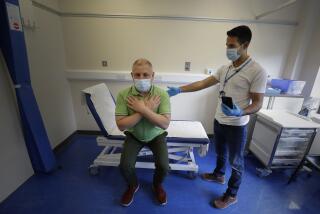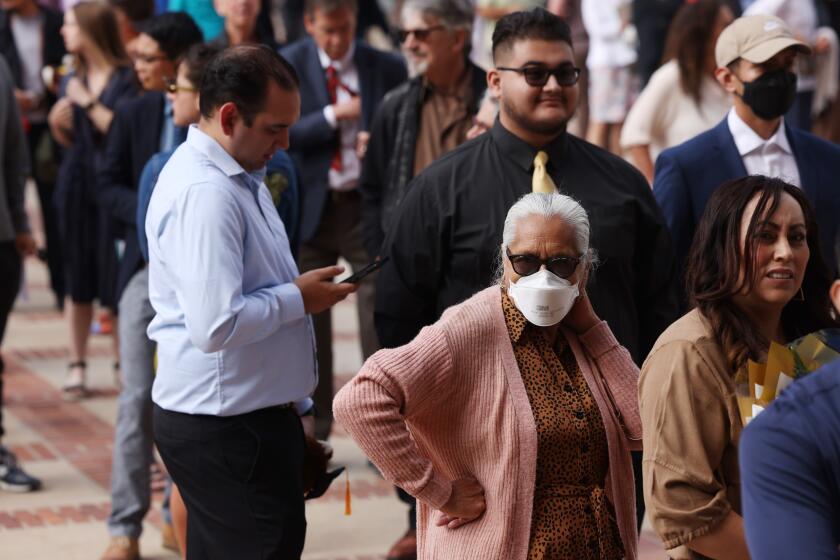‘People want the truth’ — in coronavirus-devastated Europe, calls for accountability
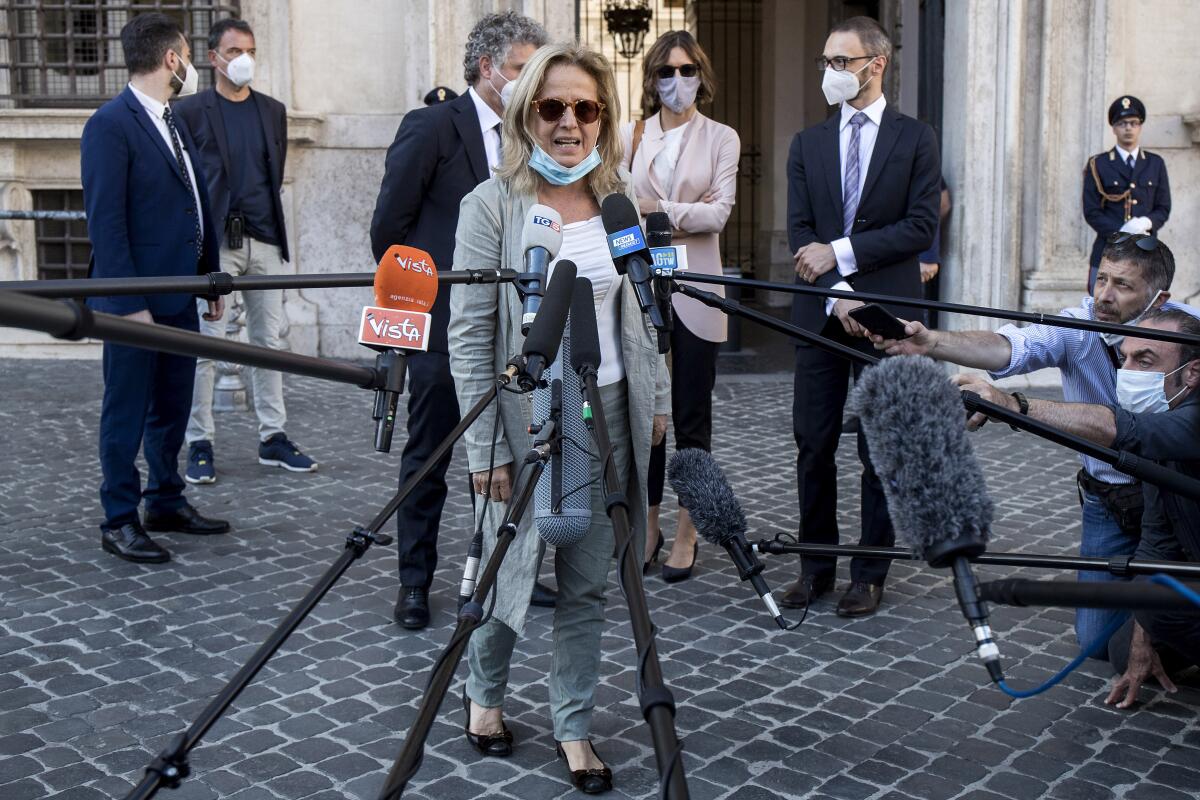
First, lacerating sorrow. Then, anger -- and a sense that someone must be held to account.
In those western European countries hardest hit by the coronavirus, calls are growing louder daily for leaders and officials to explain their actions -- and inaction -- as COVID-19, the illness caused by the virus, has swept through Britain and France, Spain and Italy.
All are countries whose cultural imprint is strong in the United States; their combined losses, as well, are of a similar dimension to those across the Atlantic.
Opposition political parties are driving some of Europe’s growing demand for a public accounting. But by and large, it is bereaved individuals and grassroots groups that are raising the greatest outcry -- organizing online, seeking out one another, tracing the jagged outlines of shared tragedy.
These groups’ goals vary -- investigations and inquiries, prosecution and penalties -- but most are united in the belief that lives were lost unnecessarily and that the same mistakes must not be made again.
Some drama is playing out in real time, with government programs to fight the coronavirus furiously derided as failures even in their nascent stages. Some scrutiny falls on events whose origins, although only months old, are already being lost in a fog of recrimination and contradiction. And even as the pandemic’s story unfolds, a fearful eye is cast on suffering still to come.
All along, Europe’s coronavirus curve has been a bit ahead of that in the United States.
In countries that have borne the regional brunt of the coronavirus, judgments ultimately passed about the virus and its political touchstones could in some ways presage a common U.S. reckoning.
Along with the same unfulfillable wish: that the dead were not truly gone.
--
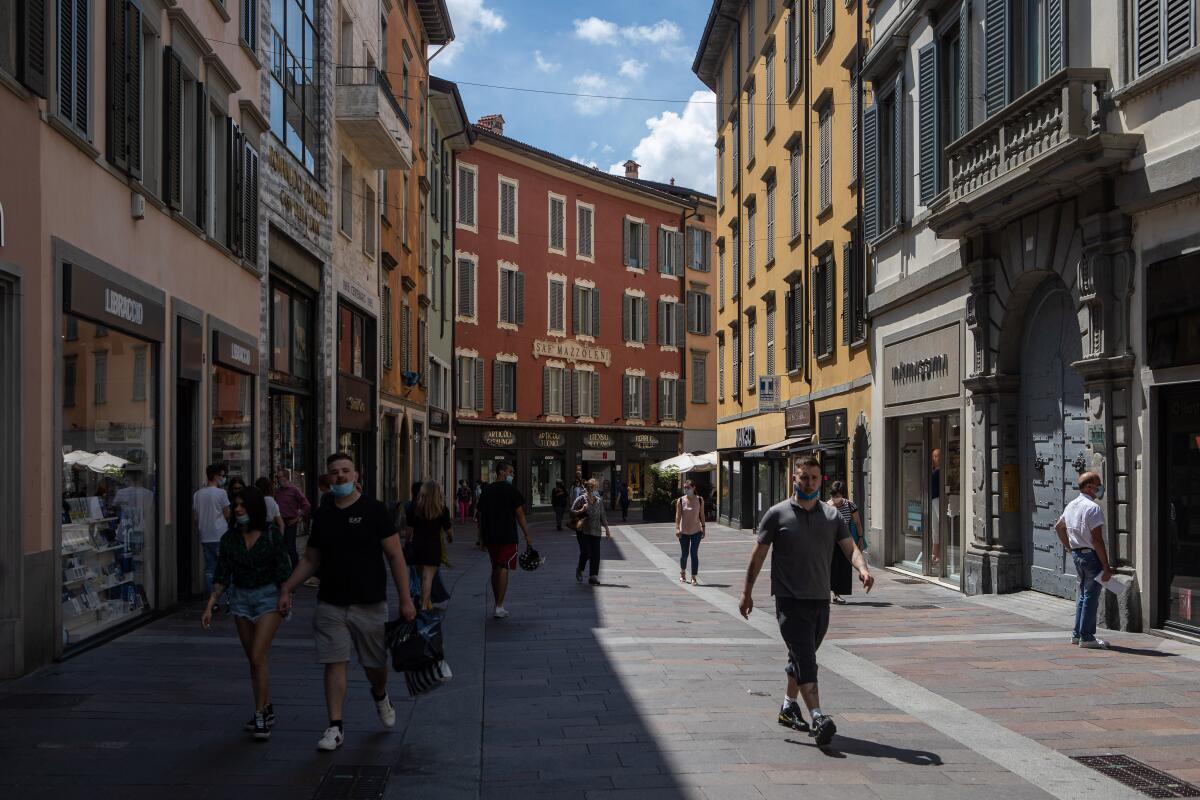
ITALY: A rallying cry arises -- ‘Noi denunceremo’
Antonio Fusco, 85, was in good health when the coronavirus reached northern Italy in late February. The retired accountant was happy and outgoing. He loved company, said his son Luca Fusco, 58.
His family brought him to a nursing home where they hoped he would be safe. That was in Bergamo, a province whose name would soon be known to all the world.
Fusco’s positive test for the coronavirus came only a day before he died on March 11. By then, funerals were suspended. The family could not gather to mourn.
Reeling, Luca Fusco and his 31-year-old son Stefano created a Facebook group called Noi denunceremo -- We’ll Bring Charges -- to share their story and collect testimony from other bereaved families.
Within 10 days, the group had reached 15,000 members; by mid-June, it had more than 58,000.
Members post daily, describing feelings of loss, anger and helplessness – and demanding an accounting from those who were tasked with managing the crisis.
Some formed a committee that is now organizing legal action.
In Italy, more than 34,510 people have died from coronavirus, the most of any country in continental Europe. Nearly half were in the northern region of Lombardy.
In early March, the government declined to implement a “red zone” in the city and province of Bergamo, even as the number of cases grew and nearby cities were placed on lockdown. Bergamo was finally included in a nationwide lockdown that lasted from March 11 to May 18, but many residents believe that was too late.
Noi denunceremo has filed 50 criminal complaints so far with the Bergamo prosecutor’s office and plans to file about 150 more by early July.
“We’re not interested in people going to jail,” Luca Fusco said. “We want the people who were responsible to quit, and we want the people who replace them to create a new system, because this system doesn’t work.”
Prosecutors and magistrate judges have opened investigations into why so many cases broke out in healthcare facilities and nursing homes, and are trying to determine whether national and regional governments acted negligently. They have questioned a number of high-level officials, including Prime Minister Giuseppe Conte.
In addition to legal steps, activists are demanding resignations of health officials and regional council members in Lombardy. Some of the officials under fire are pushing back. A senior Lombardy health official, Giulio Gallera, told the newspaper Il Giornale that the accountability movement was a political attack by unelected parties who have tried to “twist reality.”
With the immediate public health crisis having cooled -- although a second wave is feared -- dozens of organizations planned weekend demonstrations in the heart of Milan over the handling of the outbreak.
“People want the truth,” Luca Fusco said. “They want to understand why everyone in power underestimated the virus… They want to know why so many people had to die.”
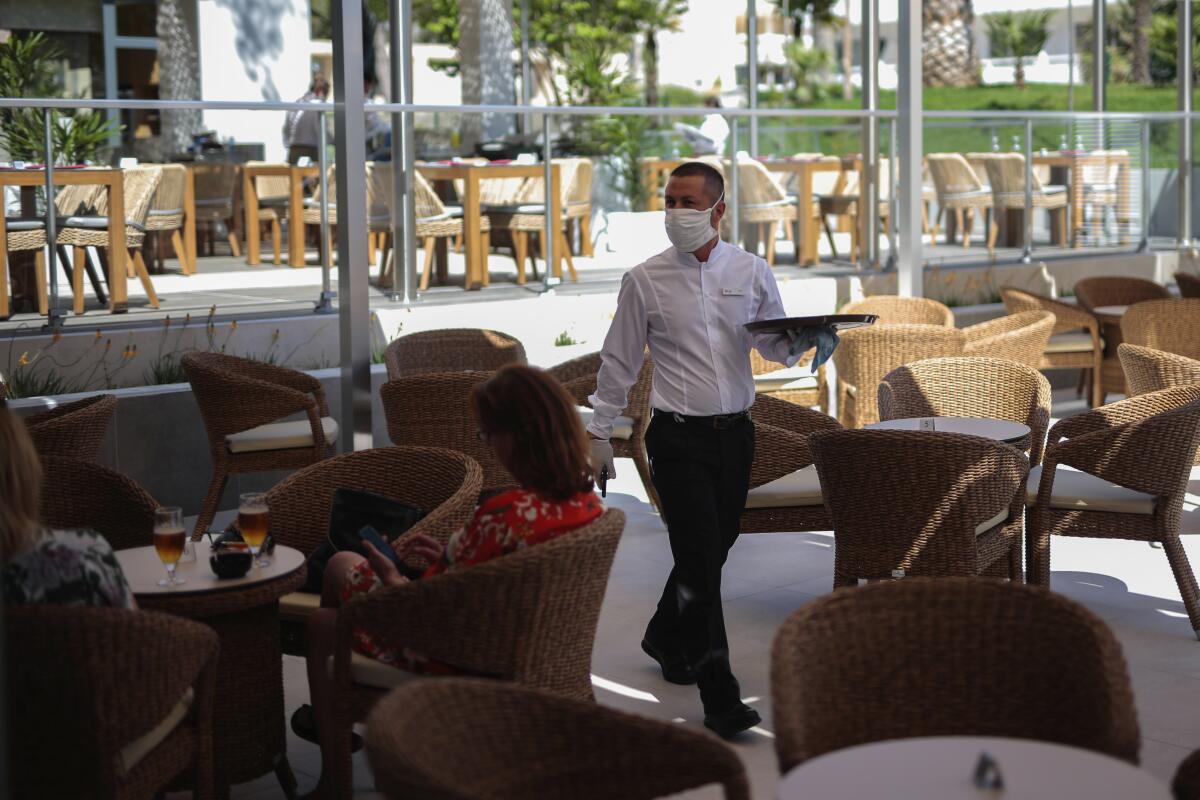
SPAIN: In ‘the teeth of the wolf’
With more than 27,130 dead of coronavirus in Spain, the world’s sixth-highest toll, Prime Minister Pedro Sánchez has faced not only harsh criticism, but also more than 40 complaints and lawsuits over the handling of the outbreak.
Sanchez and his ministers are accused of a variety of serious missteps, from bungling efforts to stem the spread of the virus to failures in acquiring and stockpiling medical equipment.
Javier Alberdi, president of the Professional Medical Union of Asturias, a major health professional organization in the northern province, said he understood the government’s reluctance to alarm the public, but that it had utterly failed to convey the scope of the threat.
“They should have acted,” he said. “They saw the teeth of the wolf; they knew this could end badly. And look how it ended!”
Among other things, he said authorities failed to foresee how many medical personnel would be stricken due to the lack of personal protective equipment and supplies.
“As a medical union, we want explanations,” he said.
Even those who care for the dead were at peril. In Spain, funeral homes are responsible for removing bodies from healthcare facilities and homes, and Juan Antonio Alguacil, president of the Spanish Assn. of Funeral Service Professionals, said scores of funeral home workers were infected.
“It was a crime what they did,” he said. “We all saw it very clearly.”
Officials ignored an unusual spike in deaths from respiratory ailments in February and did not sound the alarm for weeks.
“Why didn’t they take stock before?” Alguacil said.
The country’s high court is organizing and analyzing complaints, trying to determine whether criminal investigations against officials are warranted over actions ranging from failure to close off air traffic from Italy after the scope of the outbreak there was known to systemic negligence over worker safety.
One of the biggest class-action lawsuits, filed by 11 lawyers on behalf of more than 3,000 families, accused the government of failing to act responsibly. Among the plaintiffs was Carmen, who did not want her full name used for privacy reasons.
A crisis like this one would be a good time to spur action and bring real change. But she said politicians were only acting in accordance with their own immediate interests.
“My uncle went to the hospital twice, and both times he was sent back home because there was no room in the hospital,” she said. “There wasn’t a third time -- he died without any help.”
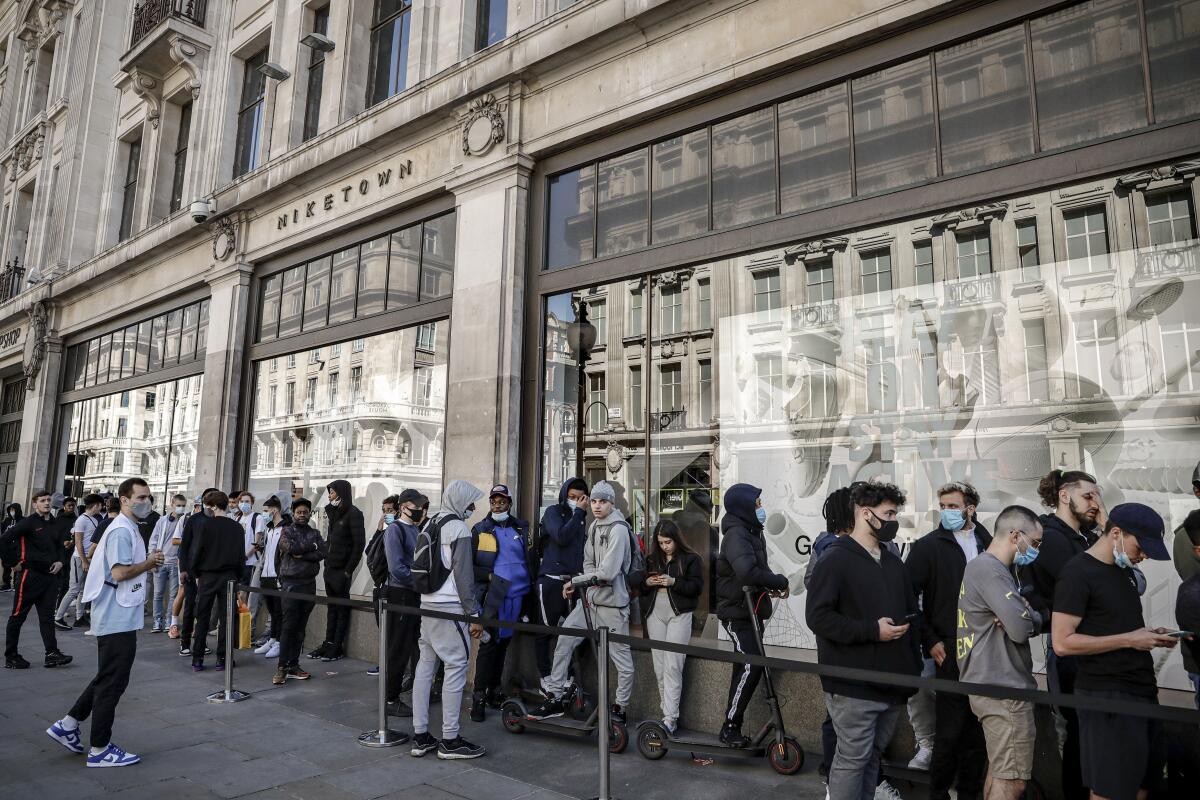
BRITAIN: ‘Must stop myself from breaking things,’ says grieving son
Prime Minister Boris Johnson got a brief burst of public sympathy in the spring, after he was hospitalized with a case of COVID-19 so serious that aides contemplated how they’d break the news to the country if he died.
But now calls are mounting for a public inquiry into his government’s handling of the coronavirus crisis – appeals that Johnson has so far brushed aside.
With Britain’s death toll at more than 42,370, the third-highest globally after the U.S. and Brazil, anger is running high.
The government’s errors of omission have piled up, critics say: failing to learn from countries whose outbreaks occurred weeks before the pandemic reached Britain, early lack of quarantines on arrivals from abroad, botched efforts to procure protective equipment for medical staff, and a huge and still-ongoing failure of what was billed as an ambitious test and contact-tracing program.
A group called the COVID-19 Bereaved Families for Justice, representing more than 900 people, has called for the government to review its actions – urgently, with an eye to preventing more deaths.
Activists have in mind cases like that of retired engineer Ian Fowler, who began showing coronavirus symptoms March 19. At first he blamed his cough and shortness of breath on hay fever. Admitted to the hospital on March 23, the first day of a nationwide lockdown, he died April 13. He was 56.
“I’m convinced that had the government taken a more proactive approach to protecting people, then not only would my dad still be here, but probably 20,000 more people who died,” said his son, Matt Fowler, 32, of the northern town of Nuneaton.
Johnson’s government often contends it has been guided by science, but England’s chief medical officer, professor Chris Whitty, has said there is “a long list of things that we need to look at very seriously.”
A former top scientific advisor to the government, Neil Ferguson, told a government committee this month that the death toll could have been halved had Britain gone into lockdown a week sooner. Meanwhile, trust in the government is dropping sharply, according to public opinion polls – exacerbated, perhaps, by episodes of senior officials, including Ferguson and top Johnson adviser Dominic Cummings, flouting lockdown rules.
For those who have lost loved ones, the emotional toll is exhausting.
“I spend most of the time trying to stop myself from breaking things and lashing out,” Fowler said. Containing his rage, he said, was “hard work.”
Like others who support an immediate inquiry, he said officials need to act as if lives hang in the balance, because they do. Many Britons fear a second wave of infection may already be on its way.
“If we can save one life, that might only be one statistic to Matt Hancock,” Fowler said, referring to Johnson’s health secretary. “But to that person’s family, it could be their entire world.”
Special correspondent Brancolini reported from Milan, Italy, staff writer Núñez from Gijon, Spain, special correspondent Boyle from London and staff writer King from Washington.
More to Read
Start your day right
Sign up for Essential California for news, features and recommendations from the L.A. Times and beyond in your inbox six days a week.
You may occasionally receive promotional content from the Los Angeles Times.

